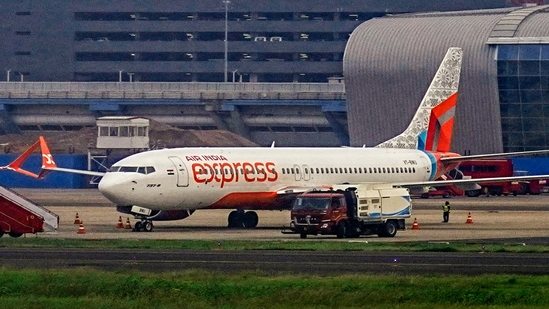Air India Express pilot, who recently got married, dies of cardiac arrest

The Tragic Loss of Air India Express Pilot
A 28-year-old pilot from Air India Express recently passed away due to a cardiac arrest. The pilot, who had just married, leaves behind a grieving family and colleagues. In a heartfelt statement, Air India Express expressed its condolences: “We deeply regret the loss of a valued colleague due to a medical condition. Our thoughts are with the family during this time of profound grief. We are extending all possible assistance to them as we all cope with this tremendous loss.”
The airline also requested that the public respect the privacy of the pilot’s family during this difficult time and refrain from unnecessary speculation. The company assured that it would fully cooperate with the authorities to manage the situation and ensure the necessary steps are taken.
DGCA’s New Proposal to Combat Pilot Fatigue
The recent tragedy highlights the ongoing issue of pilot fatigue, prompting the Director General of Civil Aviation (DGCA) to take proactive measures. In February 2025, the DGCA introduced a roadmap to limit pilot working hours and reduce fatigue. The proposed measures include increasing pilots’ weekly rest from 36 to 48 hours starting in July 2025 and limiting night flying by November 2025.
The Delhi High Court directed the DGCA to strictly follow these proposed changes and implement them within the outlined timeframes. The DGCA’s counsel assured the court that the new guidelines would be enforced as promised.
Reducing Fatigue and Enhancing Safety
The loss of the young Air India Express pilot underscores the importance of addressing pilot fatigue. While airlines are focusing on working hours, more attention must be paid to pilots’ mental health and well-being. The DGCA’s new regulations are an essential step toward improving the work environment for aircrew members.
Pilot fatigue has long been a concern in the aviation industry. The recent loss has brought to light the need for better rest periods, not just for physical recovery but also to reduce stress and improve overall mental health. The aviation industry must ensure that pilots receive adequate rest and care.
Mental Health Support for Pilots
Physical demands aside, pilots often face immense psychological stress. Long working hours, fluctuating schedules, and the pressure of passenger safety take a toll on their mental health. While the new DGCA rules are crucial, the industry also needs to prioritize mental health support for pilots.
Airlines and regulatory bodies must offer pilots access to counseling, stress management programs, and regular mental health checkups. Providing mental health resources can significantly enhance the overall well-being of aircrew members, helping them manage job-related challenges more effectively.
A Call for Greater Accountability in Aviation
The tragic loss of this young Air India Express pilot serves as a wake-up call for the aviation industry. Pilot fatigue, if unchecked, can have deadly consequences. While regulations around work hours are essential, they are just one piece of the puzzle. The aviation industry must adopt a more comprehensive approach that prioritizes the health and safety of pilots.
The industry must move beyond adhering to minimum regulatory standards and focus on ensuring the well-being of aircrew members. By doing so, airlines will create a safer, more supportive work environment, reducing the likelihood of future tragedies.
Conclusion: Learning from Tragedy
The untimely death of this young Air India Express pilot is a sobering reminder of the dangers of fatigue and stress in aviation. The DGCA’s roadmap is a positive step forward, but the industry must continue to evolve and improve. The aviation sector must not only focus on regulations but also consider the mental and physical well-being of aircrew members. Ensuring that pilots receive adequate rest, support, and care is vital to preventing future incidents. The aviation industry must act swiftly to make these changes to prevent further loss.






